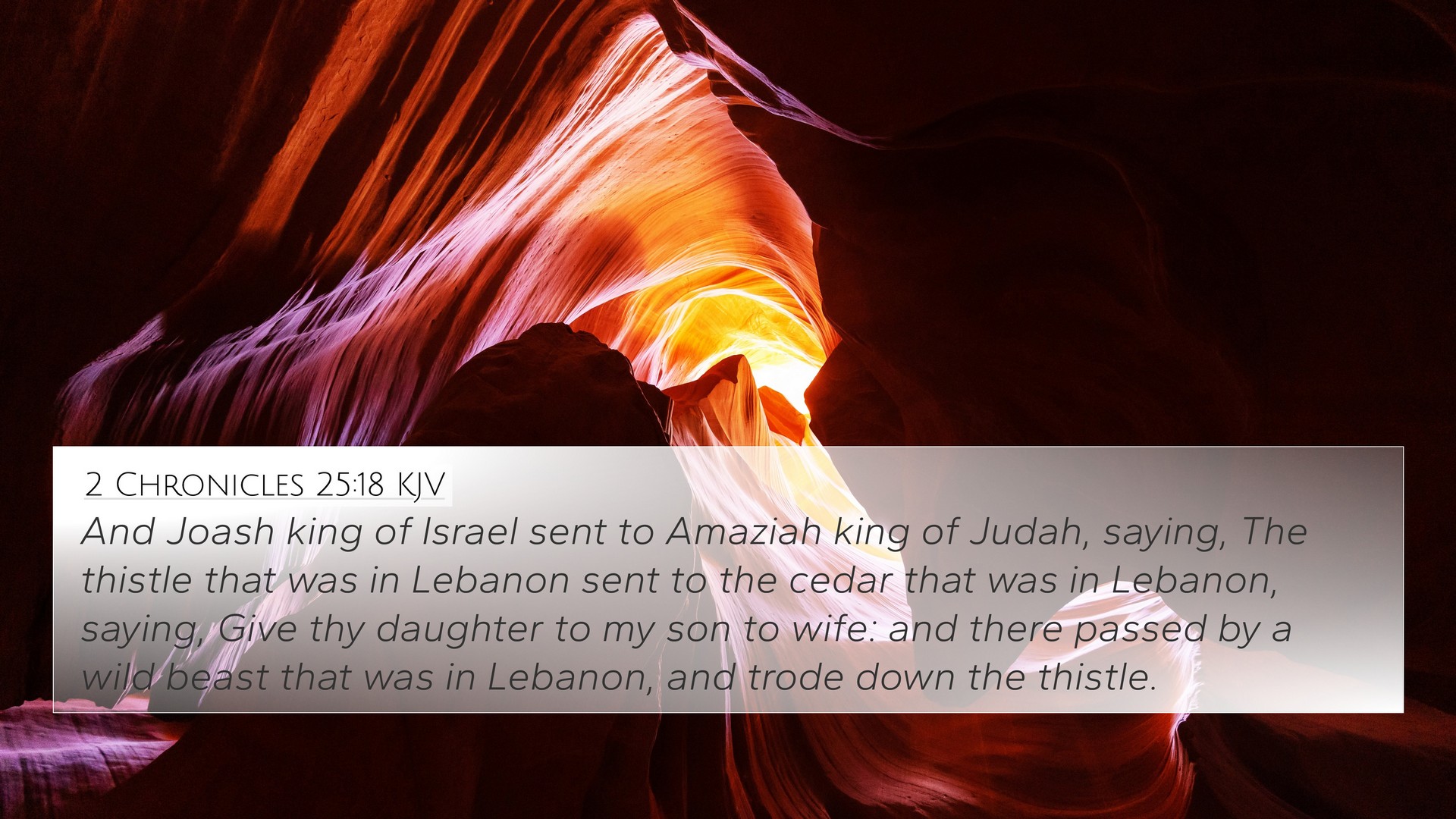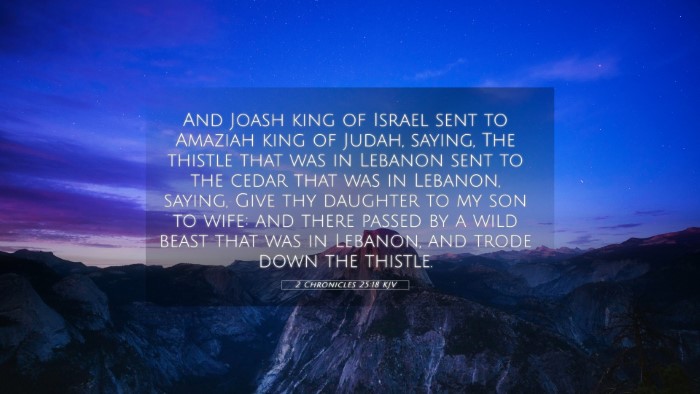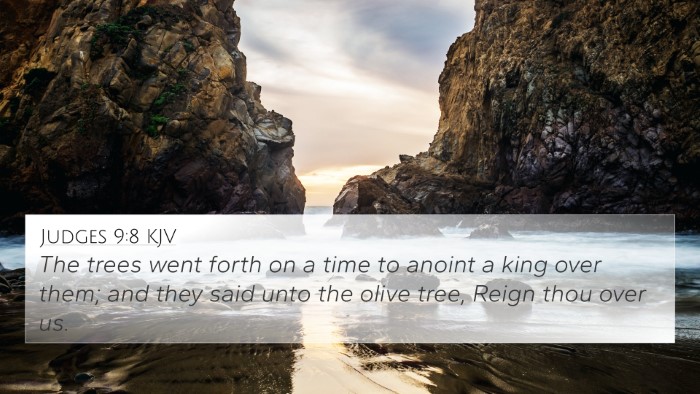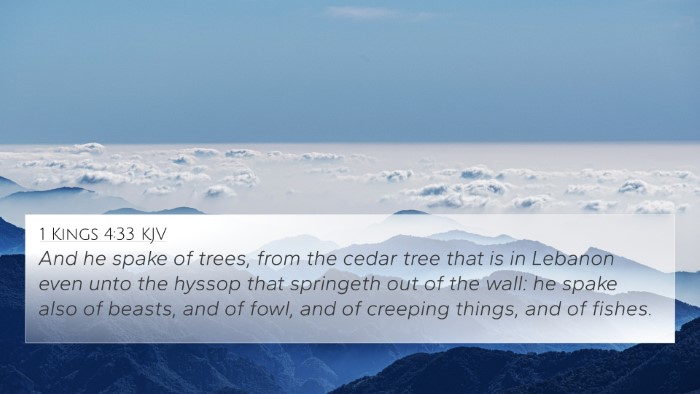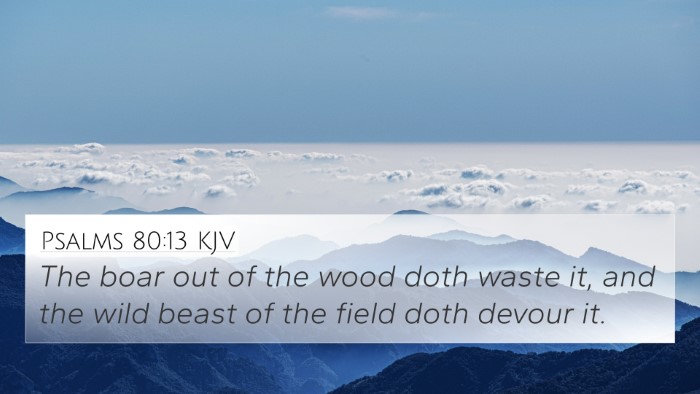Understanding 2 Chronicles 25:18
2 Chronicles 25:18 reads: "Joash king of Israel sent to Amaziah king of Judah, saying, The thorn that was in Lebanon sent to the cedar that was in Lebanon, saying, Give thy daughter to my son to wife: and there passed by a wild beast that was in Lebanon, and trode down the thistle." This verse can initially seem obscure and filled with metaphorical language. Here, we will delve into a comprehensive understanding drawn from various public domain commentaries.
Contextual Overview
To properly interpret this verse, we must first understand the context. Amaziah, the king of Judah, had recently achieved victory over Edom and felt emboldened to confront Joash, the king of Israel. The figurative language used in his message reveals deeper themes about pride and the consequences of hubris in confrontations between leaders.
Commentary Insights
-
Matthew Henry: His commentary emphasizes the folly of pride and presumption. He articulates that the parable of the thorn and the cedar illustrates the arrogance of smaller, less significant entities attempting to elevate themselves by challenging greater powers. The wild beast represents destruction that can come from conflict born out of vanity.
-
Albert Barnes: Barnes discusses the diplomatic nature of Joash's message. He points out that the metaphor serves as a warning. By likening Amaziah to a thorn trying to make alliance with a majestic cedar, he suggests that such ambitions may ultimately lead to downfall. The wild beast signifies the inevitable consequences of pride and aggression.
-
Adam Clarke: Clarke's analysis focuses on the literary structure of the metaphor. He notes that the imagery is not only a message to Amaziah about his overreaching ambitions but also serves as a subtle insult to Amaziah's character. The reference to the wild beast reinforces the danger of neglecting wisdom in leadership.
Biblical Themes and Cross-References
This verse resonates with several biblical themes such as humility, the wisdom of restraint, and the consequences of pride. Below are some related verses and their significance:
- Proverbs 16:18 - "Pride goeth before destruction, and a haughty spirit before a fall." This aligns with the moral of Amaziah’s confrontation.
- Isaiah 10:33-34 - These verses describe the impending downfall of haughty leaders, akin to the warnings given to Amaziah.
- Matthew 23:12 - "And whosoever shall exalt himself shall be abased; and he that shall humble himself shall be exalted." This New Testament tie emphasizes the importance of humility conceivably in the context of leadership.
- 1 Corinthians 1:27 - "But God hath chosen the foolish things of the world to confound the wise..." This reflects on God's choice in leaders and the irony of Amaziah's pride.
- James 4:6 - "But he giveth more grace. Wherefore he saith, God resisteth the proud, but giveth grace unto the humble." The connection lies in the character of God towards those who elevate themselves.
- Jeremiah 9:23-24 - "Let not the wise man glory in his wisdom..." This is a somber echo of Amaziah's situation of seeking glory at the expense of wisdom.
- Psalm 131:1 - The psalmist speaks of a heart not lifted up, resonating with the themes of humility central to this narrative.
Thematic Analysis
In examining 2 Chronicles 25:18, we see profound themes of leadership and humility. The verse highlights how personal pride and ambition can lead to disastrous outcomes, both for individuals and nations. The king of Judah’s desire to confront a superior power serves as a crucial reminder of the place of humility in governance. Such interpretations resonate not only with Old Testament narratives but also find echoes in New Testament teachings on pride, humility, and leadership.
Conclusion
2 Chronicles 25:18 and its surrounding context offer a rich tapestry for study through cross-referencing biblical texts. By linking this verse with others that elucidate themes of pride, humility, and the consequences of ambition, we gain a more profound understanding of the Biblical narrative at hand. Utilizing tools for Bible cross-referencing, such as concordances and study guides, can further enhance comprehension and application of these themes in our lives today.
